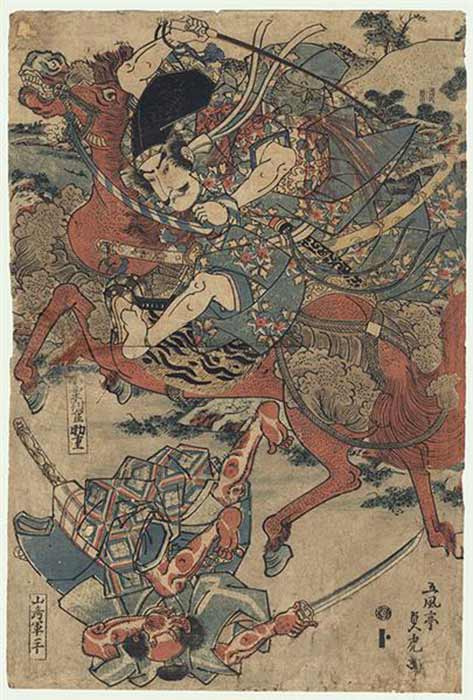Hotdogs, Hamburgers And Humans On The Menu For Carnivorous Horses
An article in the magazine The Horse entitled Carnivorous Horses by Dr Sue McDonnell in which she described horses killing and devouring other animals, spurred some letters to the editors from readers who had themselves witnessed some odd horse behavior. They related that a horse grabbed a goat with its teeth, shook it to death, and started tearing it apart and consumed the meat. Three other horses also joined in and started tearing the goat’s flesh and eating it. One man wrote, “ They all grabbed some part of the goat with their teeth and tore it to pieces with all the tugging and pulling. The one that killed the goat had the biggest part of what was left… Soon, two little colts less than three months old came over to what was left and took some bites….standing there chewing and eating… My friend and I were absolutely stunned over what we had just witnessed.” This may sound like an isolated, strange incident, but there is evidence of meat-eating horses all over the world, and historically (even in ancient times), it was common knowledge that certain horses regularly ate meat and hunted for their meals.

Alexander on Bucephalus at the battle of Issos. Alexander Sarcophagus, Istanbul Archaeological Museum. (CC BY-SA 3.0)
Carnivorous Horses In Greek Mythology
First, such horses show up in worldwide myths and legends. The Greek King Diomedes had four horses, Deinos, Xanthos, Podargos, and Lampon who feasted on the flesh of humans who entered the kingdom, and Hercules was tasked with finding some horses who routinely murdered humans and bringing them back to Greece. While he was away fighting, the horses killed and ate his companion Abderos. Alexander the Great tamed the meat-eating horse Bucephalus and later presented it to King Philip, who confined the horse to an iron cage upon realizing that it had murdered and ate human beings. Disloyal subjects were thrown into the cage with the horse, where they were subsequently devoured. Supposedly, when Alexander later visited the animal, he was horrified to see “ the remains of the numerous men it had slaughtered.”

Oguri Hangan Sukeshige and Yamasaki by Utagawa Sadatora. (Edo Period) Museum of Fine Arts, Boston (Fair Use)
Onikage The Legendary Man-Eating Horse In Japan
In Sagami Prefecture, Japan, a legendary horse was called Onikage, or “shadow demon,” and it was known as a vicious horse that ate human flesh after trampling his victims to death.
Like this Preview and want to read on? You can! JOIN US THERE ( with easy, instant access ) and see what you’re missing!! All Premium articles are available in full, with immediate access.
For the price of a cup of coffee, you get this and all the other great benefits at Ancient Origins Premium. And - each time you support AO Premium, you support independent thought and writing.
DR. KEN JEREMIAH has written several books about religions, mummification, and spirituality, including Living Buddhas, Christian Mummification, Eternal Remains. Making Millions: A 500-Year-Old Kabbalist's Guide to Conquering Chance, and Zen Art, Zen Writing Daily Meditations for Improving your Craft and Finding Joy in Life and Creatures Real and Imaginary in Chinese and Japanese Art: An Identification Guide and Remnants from a Distant Past
Top Image: Diomedes Devoured by his Horses, by Gustave Moreau (1865), Musée des Beaux-Arts de Rouen (Public Domain)
By: Ken Jeremiah




















Comments
I have substantial and irrefutable evidence of human beings eating vegetable matter! Can you believe this, I am sceptical.
Tall tales of historical embellishment aside, I'm apt to keep an open mind on this.
An interesting read and not for the first time have I come across such tales. Can horses be cannibals, and with ill intent? Yes, of course, imo. Circumstance, era, treatment, or lack of, necessity, rogue elements, free will and personality, groupthink, etc, all apply to horses as much as they do humans.
I've been a horseshoer for 50yrs. I did see a horse pick up a dead black bird flip it up and swallow it whole. Icelandic horses brought to that island survived for centuries on a steady diet of fish heads and guts left over from fishermen.
As for killing a goat and devouring it, a herd no less, I call BS. I have a couple of horses pastured with goats. They show no interest in goats. I also find the mythology of Alexander's horse Busephlous, just that. Mythology. Same for the Japanese man-eater. The sport of 'Dressage' is a left over from medieval military training of horses. The Spanish Riding School was famous for the highest schooling of horses for war. In it's famous manuvers the horse was used as a weapon. In the Capriol for instance, horse and rider would leap straight up in the air then kick out with it's hind legs. The intent was to decapitate infantry wearing heavy iron helmets. The original idea of chariots was to trample infantry too. So mythology of man-eater horses is a propaganda pipe dream.